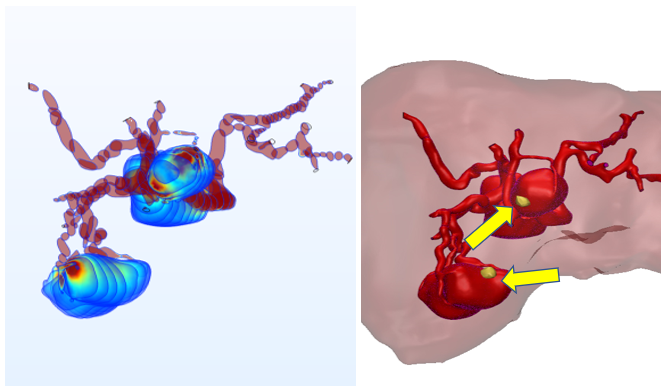Advantages:
- Identifies low-perfusion areas using multiphasic intra-arterial CT angiography integrated with computational fluid dynamics (CFD)
- Provides real-time perfusion mapping and predictive modeling for tumor recurrence
- Enhances treatment precision with patient-specific modeling of arterial hemodynamics, including blood viscosity, density, and vascular elasticity
Summary:
Accurate prediction of treatment response for hepatic tumors remains a challenge due to complex vascular anatomy and variable blood flow dynamics. Current imaging approaches fail to incorporate patient-specific variations, leading to suboptimal delivery of therapeutic agents and increased risk of tumor recurrence.
This innovation combines multiphasic intra-arterial CT angiography with computational modeling to generate a 3D geometric model of hepatic vasculature. The system employs Eulerian-based fluid flow simulation and dynamic modeling of arterial wall elasticity via a modified Hooke’s Law, incorporating Reynolds and Womersley numbers to account for pulsatile flow. By identifying "cold spots" of low perfusion, it enables more precise treatment planning and improved therapeutic outcomes. The technology provides a superior alternative to conventional static imaging techniques by integrating real-time perfusion mapping and predictive modeling for tumor recurrence.

Late-phase computed tomography angiography (CTA) model with blood flow velocity threshold at 200 cm/s demonstrating “cold spots” (blue) where natural flow dynamics limit perfusion, and thus Y-90 radioembosphere deposition (left). Yellow spheres (yellow arrows, right) represent areas of recurrence segmented from 6-month follow-up multiphase CT of the abdomen. These areas of recurrence occupy areas where flow was identified as diminished.
Desired Partnerships:
- License
- Sponsored Research
- Co-Development